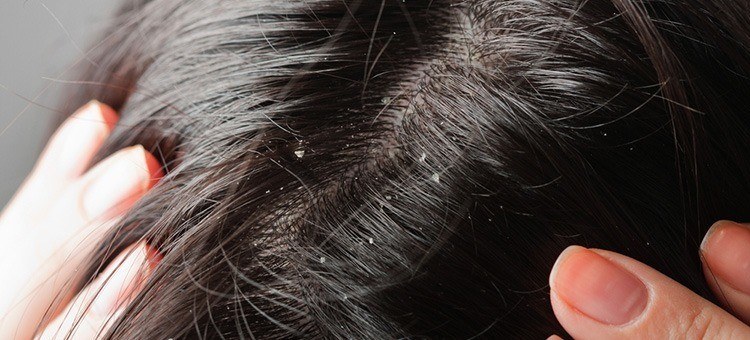
Dandruff is an inflammatory skin condition, causing flaky white or yellow scales. It is also medically termed as seborrheic dermatitis of unknown cause. Oily skin is often associated with this problem. Many people have this problem, which is marked by itching and excessive flaking of the scalp. It is not contagious, rarely serious and it can usually be controlled.
Causes of Dandruff:
Overgrowth of skin cells that make up the scalp may cause dandruff. It is not known what accelerates this cell growth.
That dandruff may be a hypersensitive reaction to the proliferation of Pityrosporum ovale, yeast that occurs naturally on the scalp.
Another theory that held for some time linked dandruff to a new fungus, Malassezia, that seems to exist in overabundance on the scalps of those affected with the disease.
Dandruff causes have been attributed to dry skin, oily skin, shampooing too often or not often enough.
Use of too many chemical hair products. (e.g., hair sprays, gels)
Other factors known to trigger dandruff include:
Hormonal imbalance.
Poor health.
poor hygiene
Use of electric hair curlers or blow dryers.
Allergic hypersensitive.
Lack of rest.
Emotional stress.
Excessive consumption of sugar, fat, starch.
Improper nutrition.
Heredity predisposition.
Stress and anxiety. Cold weather and dry indoor heating.
Sometimes sensitivities to certain hair-care products or hair dyes can cause a red, itchy, scaling scalp.
Signs and symptoms of dandruff:
It may vary, commonly symptoms include,
§ white, oily-looking flakes of dead skin in your hair and on your shoulders.
§ an itchy, scaling scalp.
§ scalp can be either excessively dry or oily.
Diagnosing Dandruff:
Dandruff can typically be self-diagnosed and does not normally require specific diagnostic measures. However, if symptoms are severe and flakes are accompanied by redness and inflammation of the scalp or a secondary skin infection, it may indicate the presence of a related condition such as seborrheic dermatitis and it should be properly diagnosed by a specialist.
Conventional Treatment of Dandruff:
Dandruff shampoos are used according to their active ingredient:
Zinc pyrithione shampoos. Containing the antibacterial and antifungal agent.
Tar-based shampoos. Used in condition such as dandruff, seborrheic dermatitis and psoriasis.
Shampoos containing salicylic acid.
Selenium sulfide shampoos. Help prevent cell turnover and may reduce the number of malassezia.
Ketoconazole shampoos. Armamentarium, ketoconazole is a broad-spectrum antifungal agent that may work when other shampoos fail.